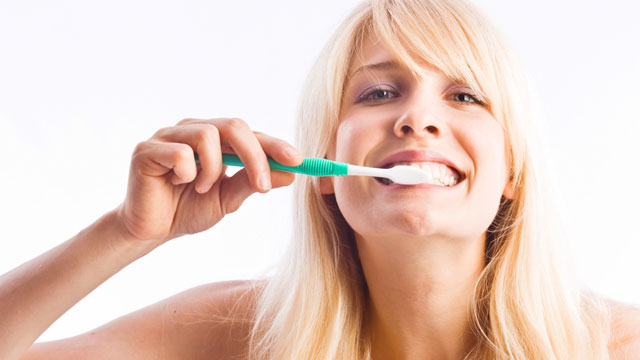No one relishes the prospect of a visit to the dentist and the potential risk factors of bad oral hygiene are scary, so why do so many Australians neglect to properly look after their teeth?
A study by the Australian Dental Association in conjunction with Oral-B found that while most Australians (87 percent) believe oral health is very important, only 30 percent think they are doing all they can to protect the health of their teeth.
As well as the more well-known problems associated with bad oral health, such as tooth loss and gum disease, other serious illnesses such as heart disease, diabetes and pregnancy complications have also been linked to poor dental care.
With rising costs of living and the expense of a visit to the dentist, it is estimated that 60 percent of Australians put-off a visit to the dentist for financial reasons.
Dentist Stephen Blatchford recommends taking a preventative approach to oral health to help minimise the risk of having serious and potentially costly dental work down the track.
The aim of oral care is to remove food debris and the invisible layer of plaque that is a collection of some 150 different kinds of bacteria that grow on our teeth, tongue and gums. The by-product of this bacteria is acidic — it weakens tooth enamel and can lead to bad breath.
If not kept in check, these germs grow exponentially and the plaque can lead to painful and unsightly gingivitis (or gum disease) which is “the body’s inflammatory immune system reaction against the plaque.” explains Dr. Ralf Adam, Head of Clinical Operations at Oral-B.
1. Quality toothbrush
“The difference between a good and a bad brush is its ability for inter-dental brushing,” Principal Scientist for Oral-B Dr Eva Kaiser said.
Dentists usually recommend a soft bristle brush to help minimise the risk of damaging the gums or teeth. Replace your toothbrush or brush head every 2-3 months. If you leave it much longer, the brush will not be as effective at cleaning your teeth.
2. Brushing technique
Using a pea-sized amount of toothpaste, gradually work around all the surfaces of your teeth, front and back. Remember don’t be too rough — it takes very little pressure to remove food and bacteria whereas too much pressure can harm the gums and tooth enamel, creating problems like receding gums.
If you use an electric toothbrush there is no need for you to scrub — just gently hold the brush against the surface of your teeth, systematically moving it from tooth to tooth.
Make sure you include the area where the tooth meets the gum as this is where plaque builds up.
An independent healthcare study in 2011¹ found that electronic toothbrushes with a rotating-oscillating head are, in the short term (four to twelve week period), the most effective at removing plaque.
3. Duration of brushing
“Imagine your mouth is split into four areas: top left, bottom left, top right and bottom right,” instructs Kaiser.
“Each quadrant should be brushed for 30 seconds and the inside, outside and biting surfaces should be cleaned. In total you should spend at least 2 minutes cleaning your teeth twice a day — after breakfast and before you go to bed.”
Kaiser recommends the Oral-B Triumph 5000 electronic toothbrush, adding “its wireless display provides while-you-brush feedback so that you can make sure you are spending enough time on each section of your mouth.”
4. Flossing
Dentist Dr Stella Karakasi, from Word of Mouth Dentistry, stresses the importance of using dental floss daily to remove plaque and food debris from in-between your teeth.
Flossing is essential to good oral health and it is a step that many people overlook.
5. Food and drinks
Be wary of what you eat and drink between brushing as sugary snacks and high acid soft drinks, sports drinks and fruit juices encourage the growth of plaque.
“Poor diet is one of the major contributors to tooth erosion, with soft drink and fruit juice being very significant,” Australian Medical Association President, Dr Steve Hambleton says.
“Sugary foods, such as sweets and lollies, fruit snack bars, sugary soft drinks and juices, all contribute to dental decay as sugar feeds the destructive bacteria in the mouth, which then puts acid on teeth.”
If these beverages are consumed, follow with a glass of water. Never brush your teeth straight after an acidic drink like orange juice as you risk stripping your teeth’s surface enamel, which once removed will not grow back.
6. The dentist is your friend
Visit your dentist regularly (make an appointment at least every 12 months), rather than waiting for a problem to occur and take their advice on board. If they recommend flossing or a different type of toothbrush, then do it — they have your best interests in mind.
¹ 1 October 18, 2011 — The Cochrane Collaboration update




